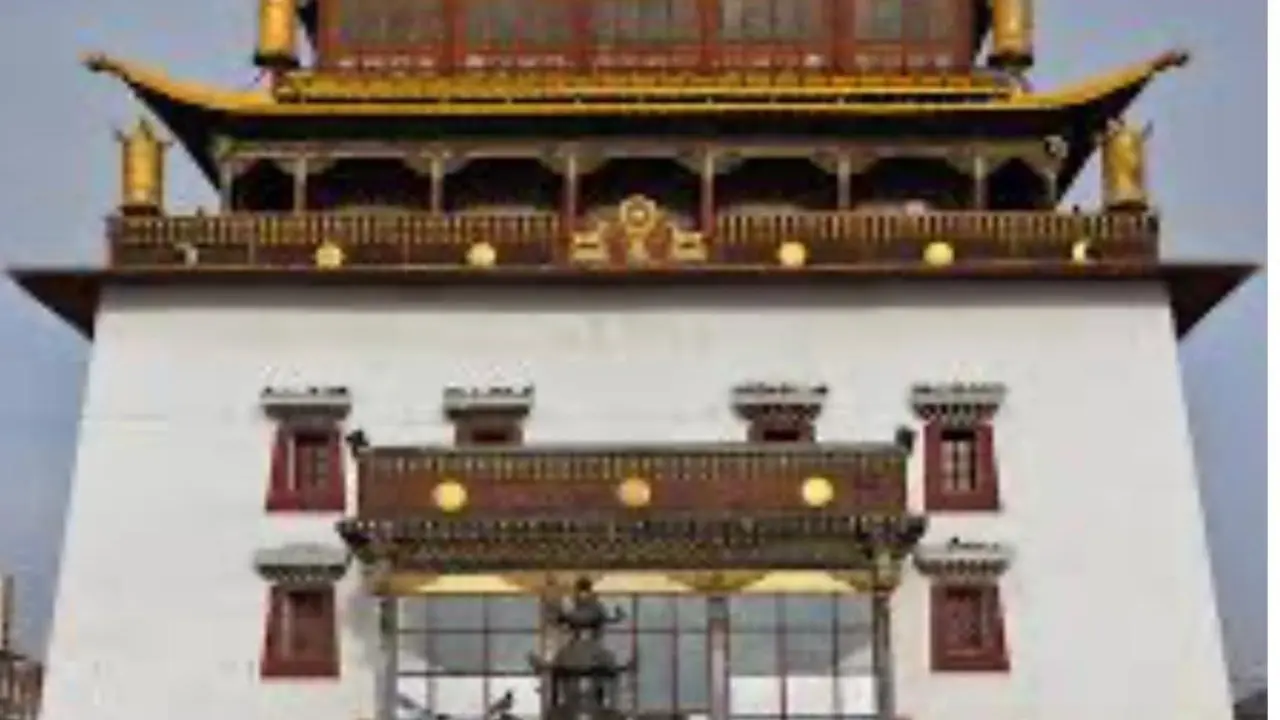Updated 22 April 2025 at 16:10 IST
Gaya to Gandan: Cultural Security As A Pillar of India-Mongolia Relations
The growing synergy between the two democracies - India and Mongolia - reflects a vision where soft power holds a central place in foreign policy.
- Opinion News
- 4 min read

In a world increasingly driven by economics and military alliances, India and Mongolia are quietly demonstrating that cultural ties — deeply rooted in history, philosophy, and shared spiritual heritage — can be just as powerful in building resilient, strategic relationships.
Aptly captured in the theme “Gaya to Gandan – Cultural Security as a Pillar of India-Mongolia Relations,” the growing synergy between the two democracies reflects a vision where soft power holds a central place in foreign policy.
The phrase itself is symbolic. Gaya, a sacred site in India’s Bihar state where the Buddha attained enlightenment, and Gandan, Mongolia’s revered monastery in Ulaanbaatar, serve as spiritual bookends to a centuries-old relationship.
These are not mere landmarks; they are civilizational touchpoints, testament to a flow of ideas and faith that has withstood time, empires, and changing geopolitics.
Advertisement
Also read: Parliament Is Supreme: VP Dhankhar Doubles Down, Questions Role of Judiciary During Emergency
Buddhism: The Spiritual Thread
Advertisement
The India-Mongolia partnership is underpinned by what experts call the "3Ds": Democracy, Dharma, and Development Partnerships. The spread of Buddhism from India to the Mongolian steppes centuries ago laid the foundation for a unique cultural kinship. For generations, Mongolian monks have journeyed to Indian sites such as Bodh Gaya, Nalanda, and Sarnath — sacred spaces that are etched into Mongolia’s national consciousness.
In modern times, this spiritual connection has been revitalized. The 2022 gifting of the Kapilavastu relics from India to Mongolia was more than a diplomatic gesture. It was a profound act of cultural reaffirmation, reminding both nations of their shared legacy.

Cultural Security as Strategy
While global discourse often focuses on cyber, military, or economic security, India and Mongolia are making a case for cultural security — the safeguarding of identity, traditions, and spiritual heritage. This becomes particularly vital in the face of globalization and regional hegemonies.
India’s support in building Buddhist institutions, translating scriptures, and expanding cultural exchanges has helped reinforce Mongolia’s unique identity, especially important for a nation balancing its geographic proximity to two giants — China and Russia.
Strategic and Economic Dimensions
Beyond cultural ties, the relationship has matured into a comprehensive strategic partnership. Prime Minister Narendra Modi’s historic 2015 visit to Mongolia elevated bilateral relations to a new level. Today, cooperation extends to joint military exercises such as Nomadic Elephant and Khan Quest, defense training, and peacekeeping efforts.
Economically, the nations are exploring energy collaboration. India is investing in the Mongol Refinery in Dornogovi province, a game-changing project that will reduce Mongolia’s dependence on Russian fuel imports. Simultaneously, discussions are underway for India to import Mongolian coking coal — a cheaper and high-quality alternative that could benefit India’s steel industry.
Infrastructure projects, including the Dornod–Sainshand oil pipeline, also see Indian participation, underlining the strategic depth of this engagement.
Digital Diplomacy and People-to-People Ties
With physical distances limiting large-scale trade and tourism, both countries are turning to digital diplomacy. Initiatives like the Atal Bihari Vajpayee Centre for Excellence in IT in Ulaanbaatar are equipping Mongolian youth with skills while deepening cultural awareness.
There is also potential for spiritual tourism and medical tourism, with India offering holistic healthcare and access to sacred Buddhist sites.
Environmental and Climate Cooperation
In 2025, environmental cooperation is emerging as a priority. Facing desertification and water scarcity, Mongolia is working with India on sustainable development solutions. India’s leadership in solar energy offers promising avenues, as both nations look to strengthen climate resilience under frameworks like Mongolia’s "Vision 2050" and the "New Recovery Policy."
Geopolitical Realignments and Future Pathways
Amidst growing Chinese influence in Asia, India and Mongolia are aligning closely within multilateral forums like the United Nations and Shanghai Cooperation Organization (SCO). Both nations emphasize strategic autonomy, peace, and democratic values.
However, challenges remain — including limited connectivity, geographic constraints, and economic scale. The road ahead requires meticulous implementation of agreements and timely execution of joint initiatives. Still, the foundation is strong, buoyed by mutual trust and a shared vision.
Conclusion: A Quiet Revolution in Diplomacy
As 2025 unfolds with the celebration of their 70 th Anniversary of Diplomatic Relations, India and Mongolia are scripting a diplomatic narrative where history and heritage guide future strategy. “Gaya to Gandan” is more than just a poetic phrase — it is a diplomatic doctrine. A reminder that in a world of shifting alliances, culture remains a steady compass, pointing toward peace, partnership, and purpose.
Their evolving partnership is a case study in how cultural security can serve as a pillar of modern diplomacy — quietly powerful, deeply human, and uniquely enduring.
Dr Vaishali Krishna is an Assistant Professor at centre for Russian and central Asian studies, School of International Studies and Jawaharlal Nehru university New Delhi .
Published By : Radhika Dhawad
Published On: 22 April 2025 at 16:09 IST
